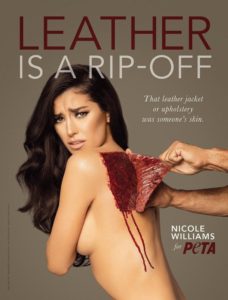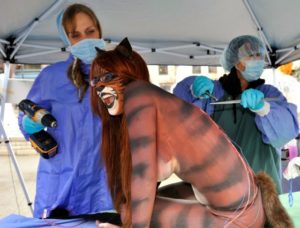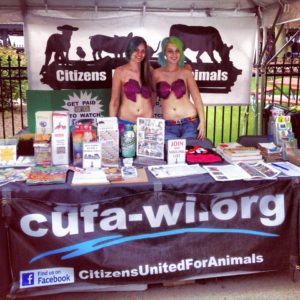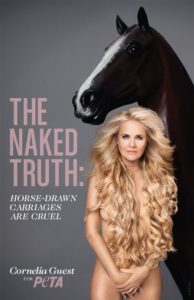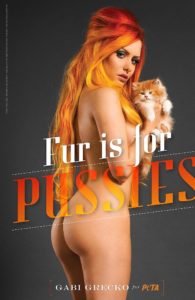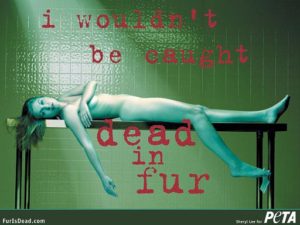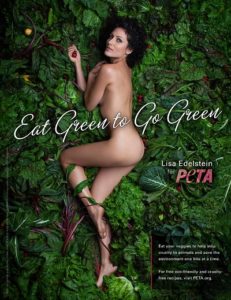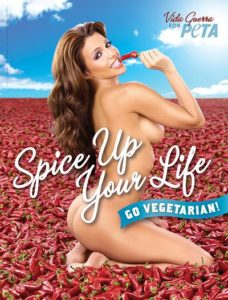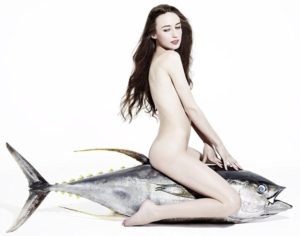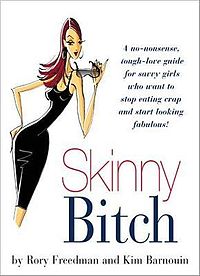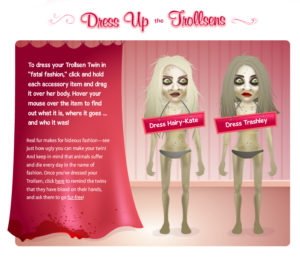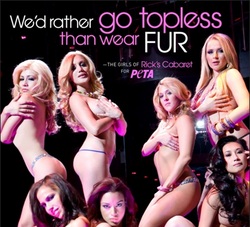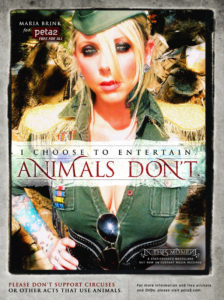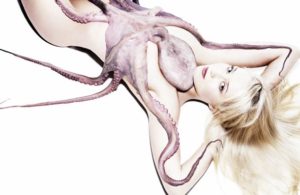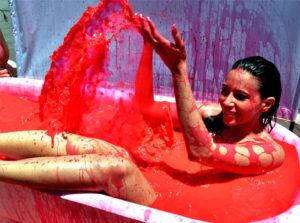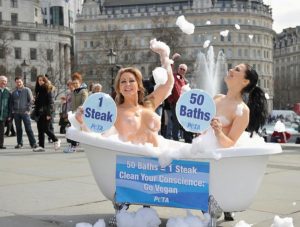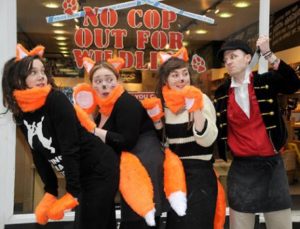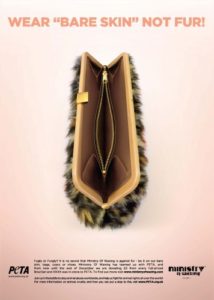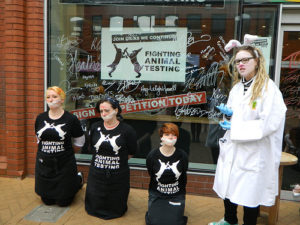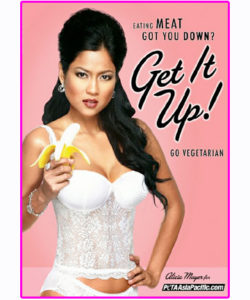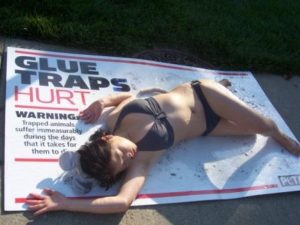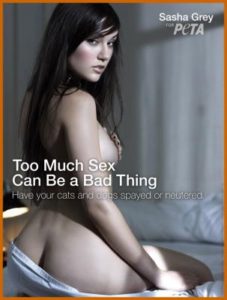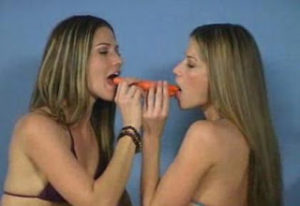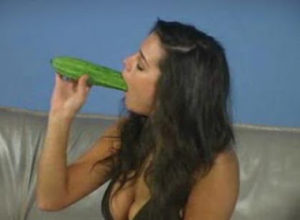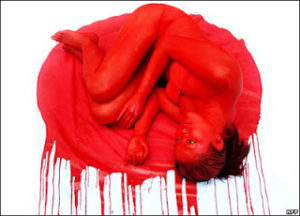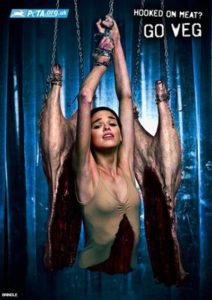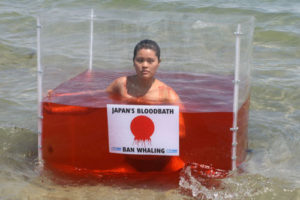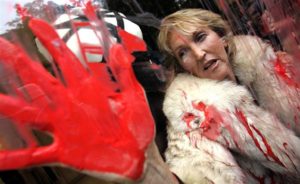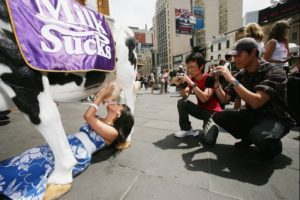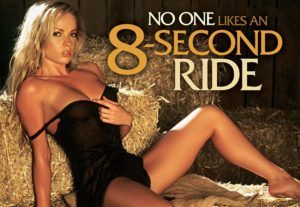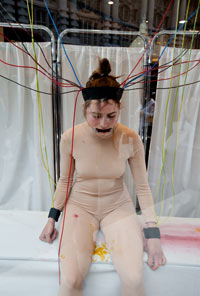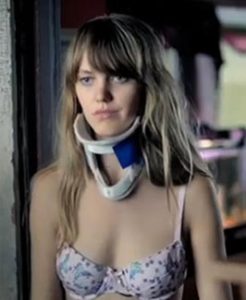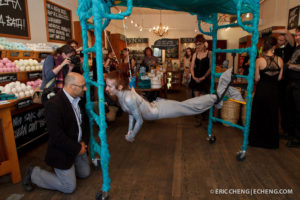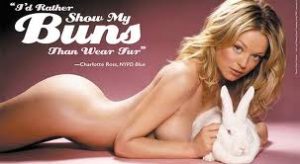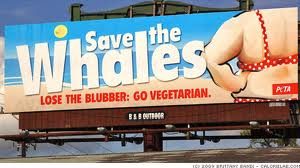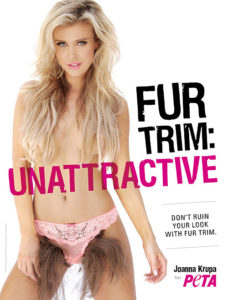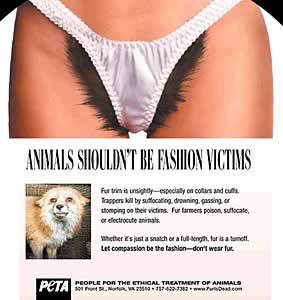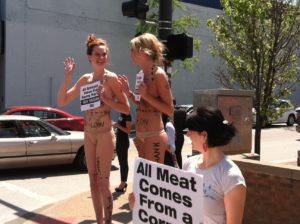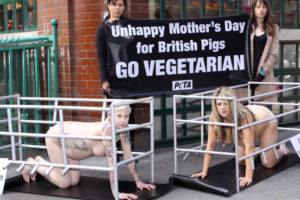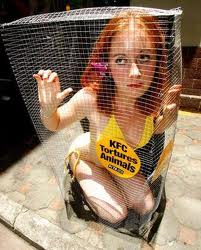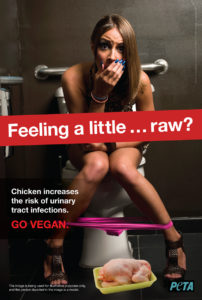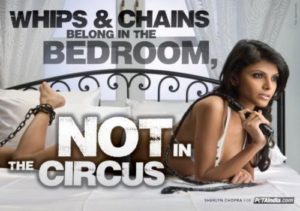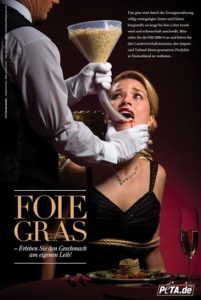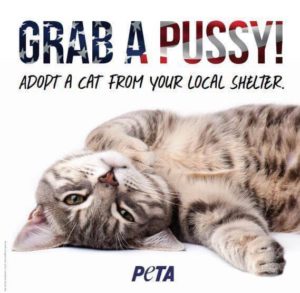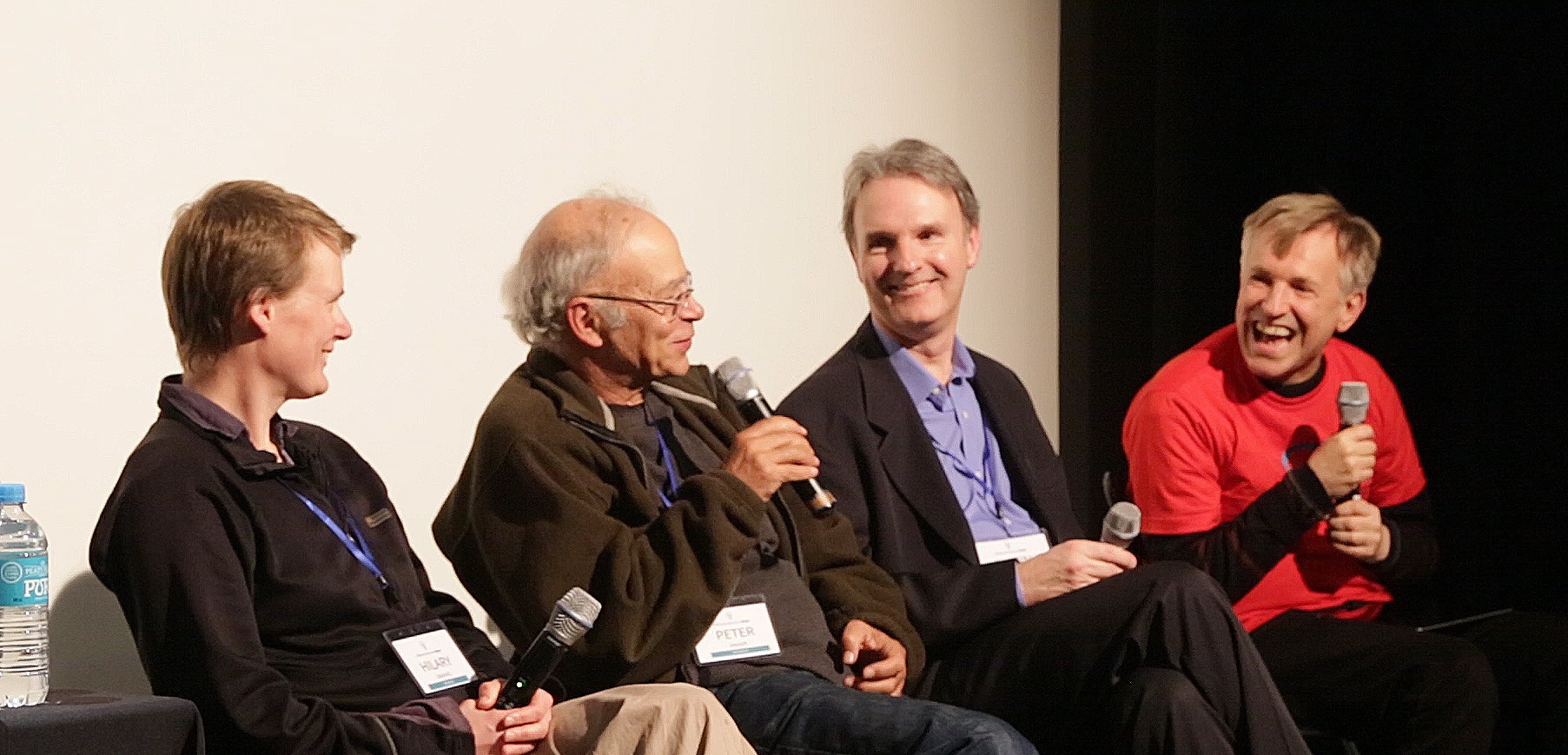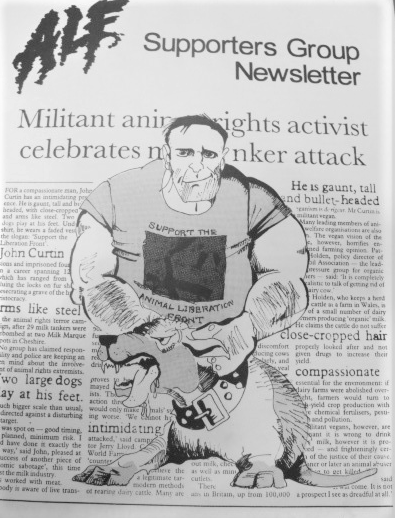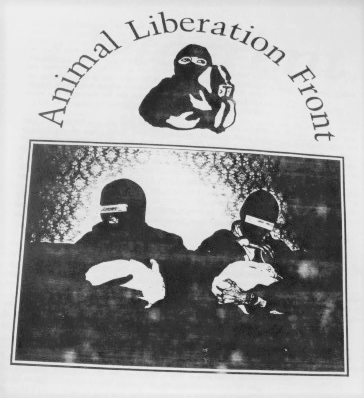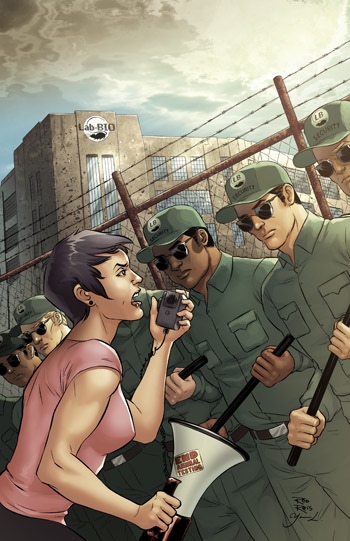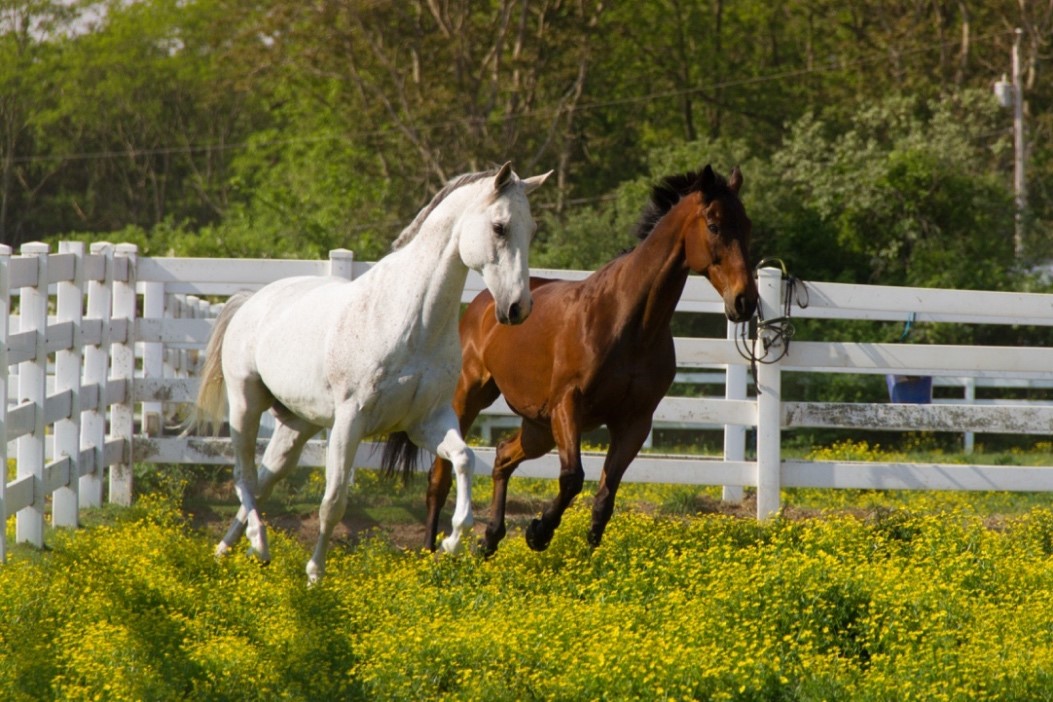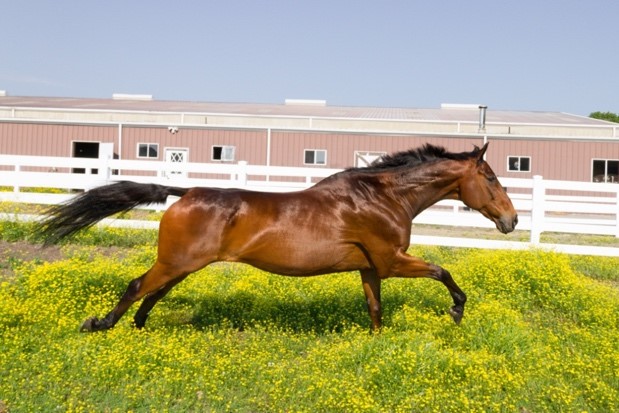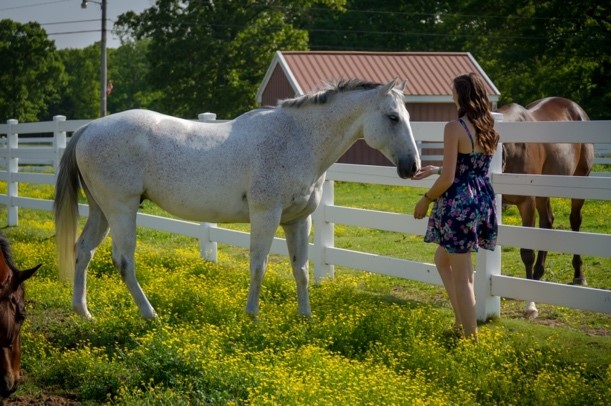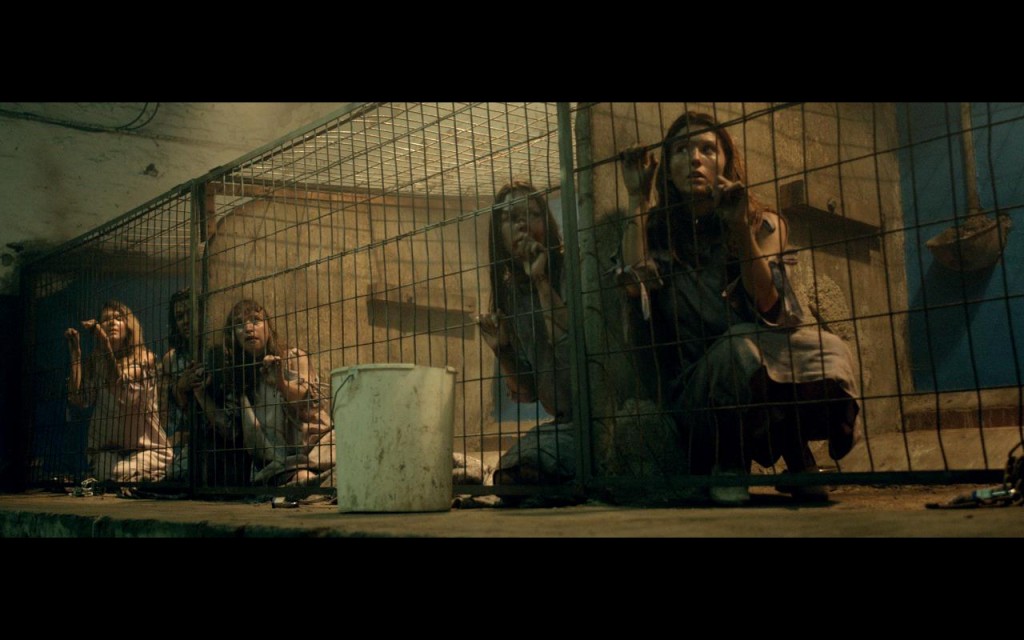Content Warning: Depictions of physical and sexual violence against women. NOT SAFE FOR WORK.
The following images collected from online news sources and activist spaces chronicles the systematic exploitation of women for the purposes of anti-speciesist campaigning. Although persons of all genders are active in the movement (and nonhumans of all sexes are exploited), it is disproportionately women who are volunteered as proxies for violence against Nonhuman Animal bodies. There are two reasons for this pattern. First, in a misogynistic society, the public is already cued to images of suffering women. Second, the Nonhuman Animal rights movement has a long history of institutional sexism. Scientific evidence does not support that this approach is effective. To the contrary, it repels the public, alienates potential allies in other social justice movements, and aggravates the epidemic levels of violence against women and girls across the globe.
– Corey Lee Wrenn, PhD
Last Updated: April 23, 2017
This blog post is no longer being updated. Please visit the permanent resource page for curated version.
PETA – Anti-Leather Campaign
PETAUK – Anti-Foie Gras Demonstration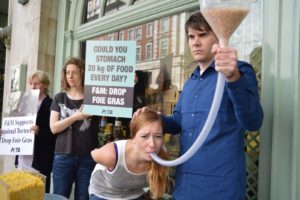
Animal Liberation Victoria – Anti-Vivisection Campaign
Stop UBC Animal Research & PETA – Anti-Vivisection Demo
Anima Naturalis – Anti-Vivisection Demo

Citizens United For Animals
Against Animal Cruelty Tasmania
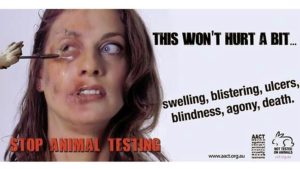
Igualdad Animal – World Meat-Out Day

PETA – Go Veg Campaign

PETA’s “Youngest Pinup” (Model is 16)
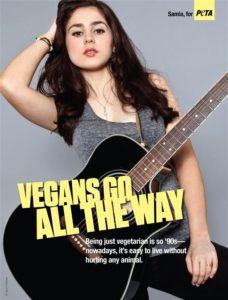
Deutscher Tierschuntzbund E.V. (German Animal Welfare Association) – Anti-Fur Campaign

Deutscher Tierschutzbund E.V. (German Animal Welfare Association) – Anti-Horse Branding Campaign

Image from Vegan Pinup
PETA – Go Veg Campaign
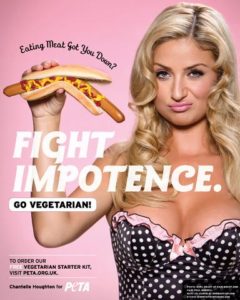
PETA – Milk Gone Wild Commercial
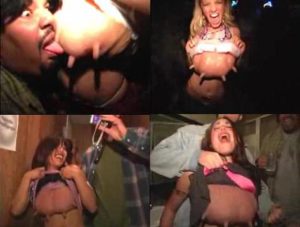
Citizens United for Animals
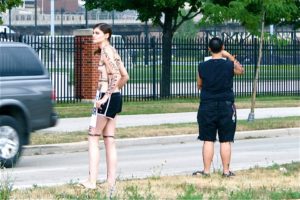
PETA – Anti-Fur Campaign
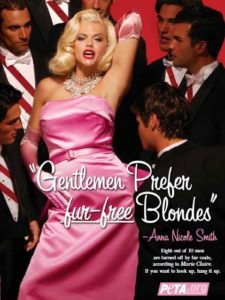
PETA – Anti-Sealing Campaign
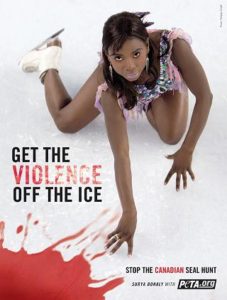
PETA – Leather Shoe Protest
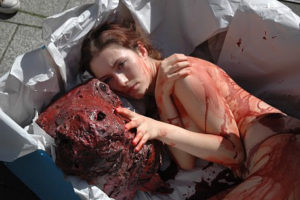
PETA – Anti-Fur Campaign
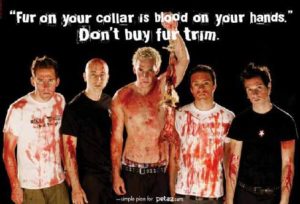
PETA – Dogs in Hot Cars Commercial
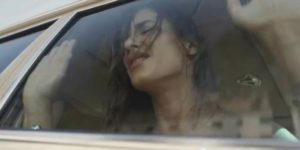
PETA – Horse Carriage Campaign
PETA – Go Veg Campaign
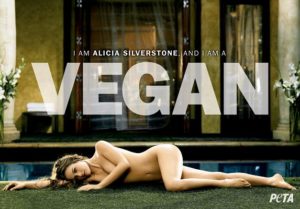
PETA – Spay/Neuter Campaign
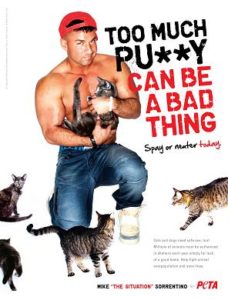
PETA – Anti-Fur Campaign
PETA – Anti-Fur Campaign
PETA – Go Veg Campaign
LUSH Cosmetics – Anti-Vivisection Demo
FishLove – Over Fishing Campaign
Freedman & Barnouin – Cookbook
PETA – Anti-Fur Campaign (Targeting the Olsen Twins)
PETA – Anti-Fur Campaign
PETA – Anti-Circus Campaign
FishLove – Over Fishing Campaign
PETA – Animal Times Cover
PETA – Go Veg Demo
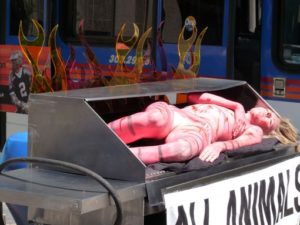
PETA – Go Veg Campaign
PETA – Anti-Vivisection Demo
PETA – Go Veg Demo
LUSH Cosmetics – Anti-Fur Demo
PETA – Anti-Fur Campaign
LUSH Cosmetics – Anti-Fur Demo
LUSH Cosmetics – Anti-Vivisection Demo
PETA – Vegetarian Campaign
PETA – Glue Trap Campaign
PETA – Spay & Neuter Campaign
PETA – Veggie Love Casting Session
Animal Liberation Victoria – Anti-Whaling Demo
PETA – Go Veg Campaign
Animal Liberation Victoria – Anti-Whaling Demo
PETA – Anti-Fur Demo
PETA – Anti-Vivisection Campaign
Animal Naturalis – Anti-Vivisection Demo
LUSH Cosmetics – Reduced Product Packaging Demo
Animal Liberation Victoria – Milk Sucks Demo
PETA – Go Veg Campaign
LUSH Cosmetics – Anti-Vivisection Demo
PETA – Go Veg Campaign (“Boyfriend Went Vegan and Knocked the Bottom Out of Me”)
LUSH Cosmetics – Anti-Fishing Demo
PETA – Anti-Circus Campaign
PETA – Go Veg Demo
PETA – Anti-Fur Campaign
PETA – Anti-Glue Trap Campaign
PETA – Go Veg Campaign
PETA – KFC Boycott Demo
PETA – Anti-Fur Campaign
PETA – Go Veg Demo
PETA – Anti-Bull Fighting Demo
PETA – KFC Boycott Demo
PETA – Go Veg Campaign
PETA – Anti-Circus/Elephant Rights Campaign
PETA – Anti-Vivisection Campaign
PETA – Anti-Foie Gras Campaign
PETA – Animal Adoption Campaign
 Readers can learn more about sexism in the Nonhuman Animal rights movement in my 2016 publication, A Rational Approach to Animal Rights.This essay was originally published on The Academic Activist Vegan on May 22, 2013.
Readers can learn more about sexism in the Nonhuman Animal rights movement in my 2016 publication, A Rational Approach to Animal Rights.This essay was originally published on The Academic Activist Vegan on May 22, 2013.

